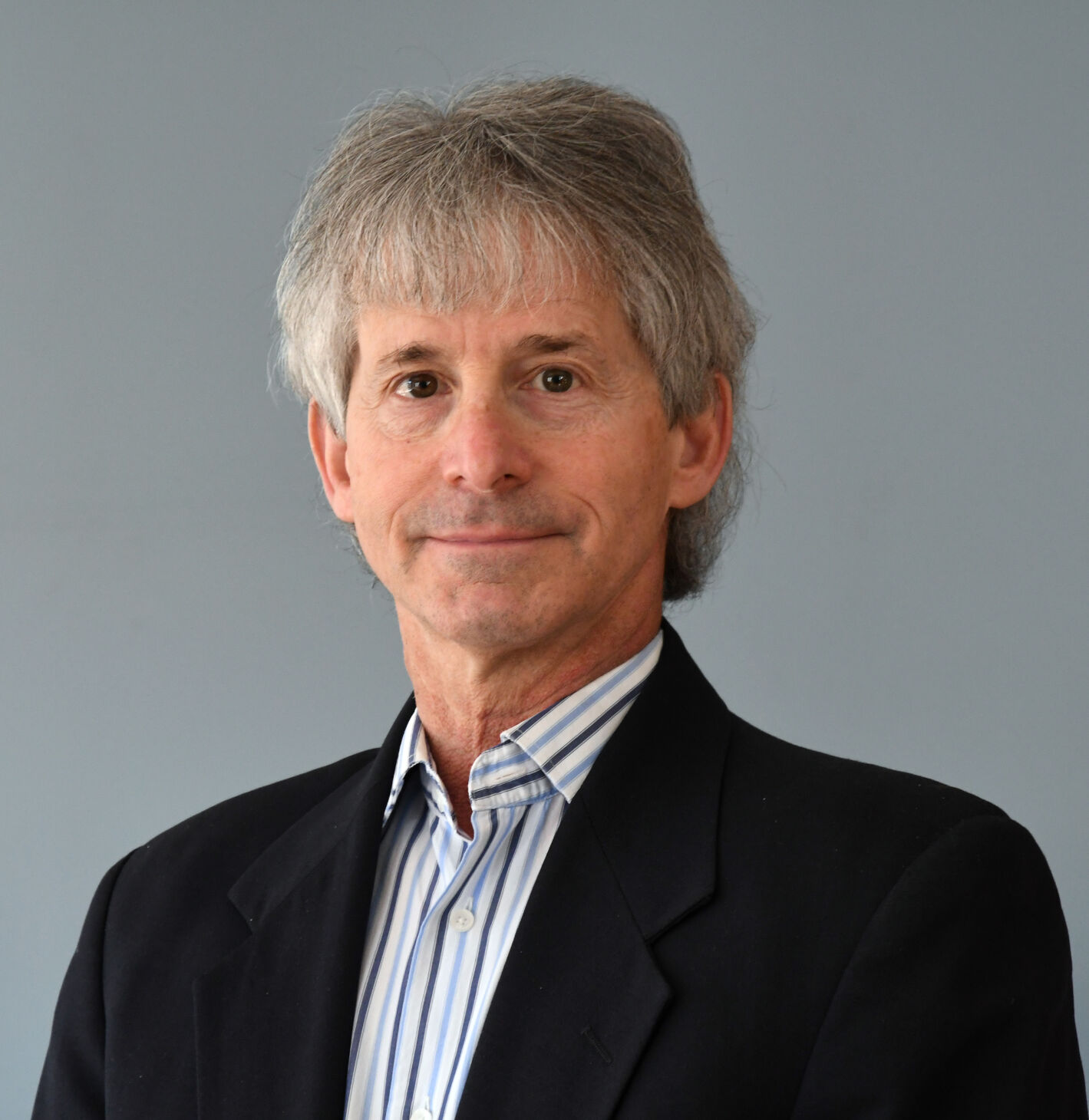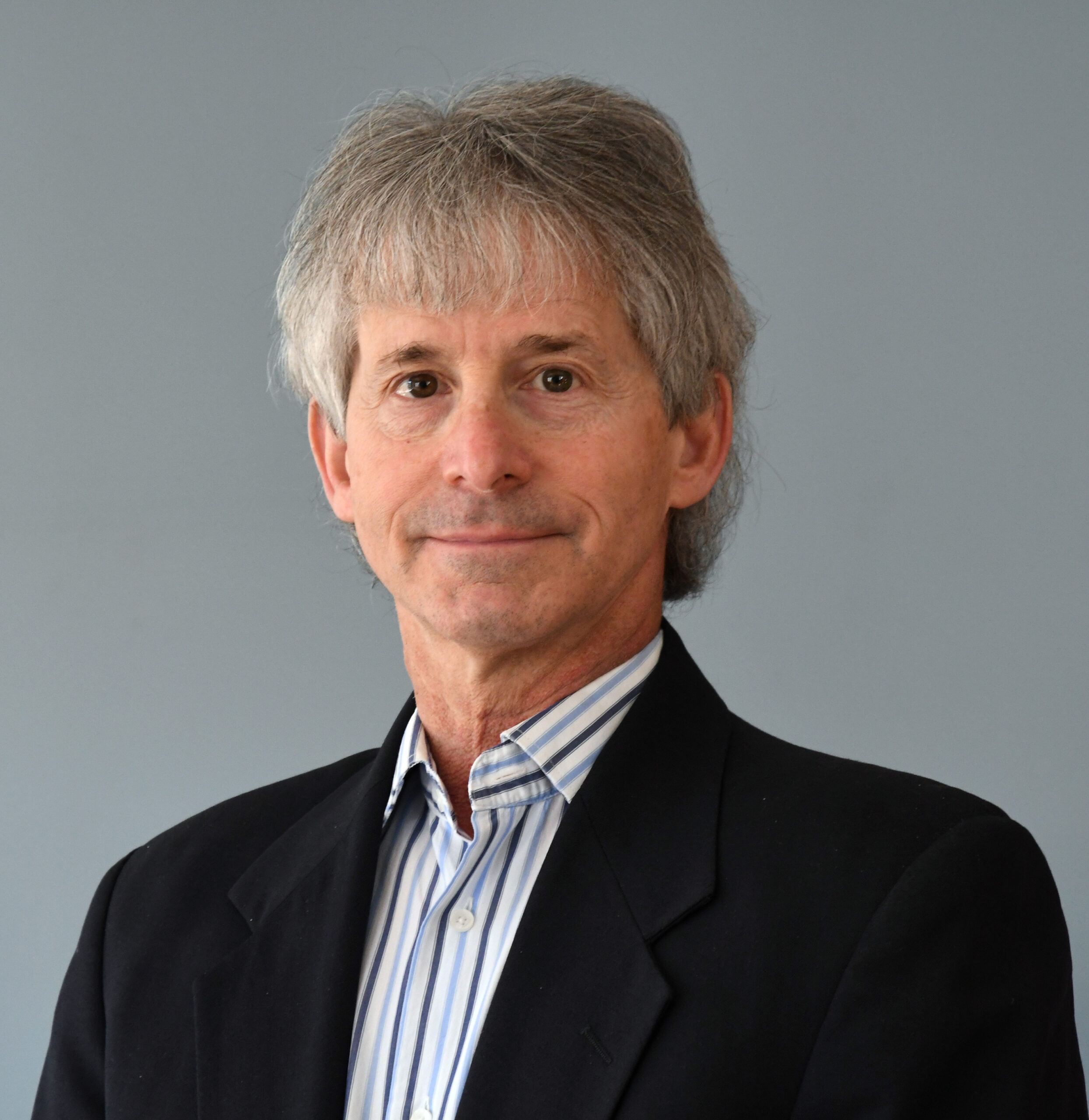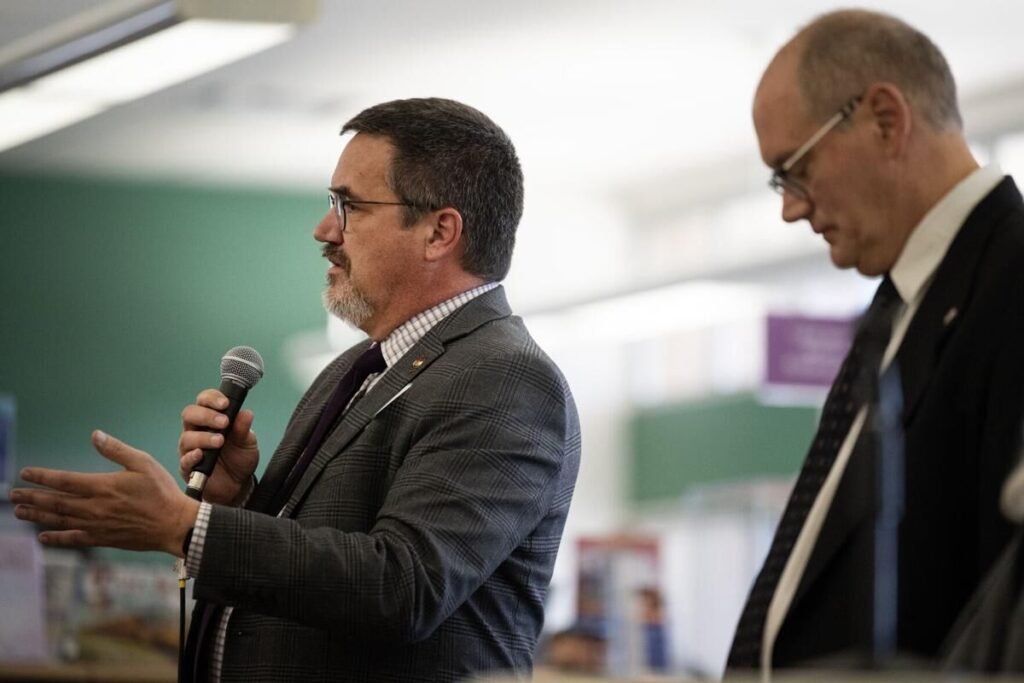Q&A with Steve Zansberg | Defending Colorado’s right to know

Colorado doesn’t just have a friend in Steve Zansberg. They have a defender of the public’s right to know and the press’s ability to do its job. Toiling in a law library instead of a newsroom, the former TV journalist is a giant behind the scenes of just about every one of the state’s biggest First Amendment fights over the last 2½ decades.
If the public has a right to know, it’s usually Zansberg fighting hardest for that right. Though it’s his profession, he’s also known for his pro bono fights for reporters, news outlets and others who enjoy the freedom of information. He currently serves as president of the Colorado Freedom of Information Coalition, ensuring proposed changes to the law, access to public records and initiatives around transparency.
Zansberg is a past chairman of the American Bar Association’s Forum on Communications Law, among several media-law committees he’s chaired. He also has taught media law and internet law at the University of Colorado and at the University of Denver’s Sturm College of Law.
If he was one to talk outside of court, Zansberg would have a lot of interesting tales to tell.
For instance, he defended A&E Television Networks when an inmate at Supermax in Florence sued over the show “Gangland: Aryan Brotherhood.” The suit alleged that just because the plaintiff did the bidding of the gang and hung out with its members, it didn’t mean he was a member. Zansberg got the case dismissed in 2011, when the federal appeals court in Denver upheld the lower court’s dismissal.
Judge Neil Gorsuch, now on the Supreme Court, agreed with Zansberg, writing, “And having willingly helped the Brothers flout prison security measures as part of a criminal conspiracy, it’s a few years too late to take a principled stand against their agenda.”
Zansberg has worked for some of the city’s biggest, best boutique law firms, and this year started his own. The motivation was to defend struggling media outlets that can’t afford boutique rates and still stay in business.
On top of it all, Zansberg was a TV reporter and documentary producer in San Francisco before a scholarship to Yale led him into the law.
Colorado Politics caught up with the barrister recently to talk a little shop.
Colorado Politics: You started out as a TV reporter and basically never left the newsroom. Why do you think that is?
Steve Zansberg: I was a documentary producer, not a hard/breaking news reporter. I loved getting to know people well enough that they’d trust me to tell their story accurately. When I became a lawyer I was naturally drawn to working in media law and First Amendment litigation, so I could lend my new skill set to assisting those who are committed to keeping the rest of us well-informed. I suppose it’s in my blood.
CP: What drew you to the law profession to begin with?
Zansberg: I actually went to law school initially (first year) as a Knight-Ridder Foundation journalism fellow. I then decided to “jump ship” and become a lawyer, thinking I’d become an academic/law professor, not an actual practicing attorney. Once I started practicing, though, I discovered I enjoy actually helping clients tackle real problems more than I enjoyed scholarship. I still do a fair amount of academic writing and occasionally serve as an adjunct law professor.
CP: If you had stayed a beat reporter, what kind of stories would you have taken on? What’s the best story you ever reported?
Zansberg: If I had stayed in broadcast journalism, I would have focused not on covering day-to-day “news” events but on longer-form reporting on broad societal trends, like the connection between race and poverty; the impact of domestic violence on entire families across generations; and the steady destruction of our ecosystem. Of all the stories I covered back in the day, I was particularly fond of a segment I produced that profiled what happens to “whistleblowers” after the news crews have packed up and moved on to cover the next story; the folks who had such integrity and courage to put their careers on the line to expose wrongdoing often suffered the consequences for years thereafter. I was reminded of that piece last year during the first impeachment inquiry against our former president, when a number of brave women and men came forward to expose the truth.
CP: You’ve been associated with some big, well-paying firms. Why did you want to risk it now and strike out on your own?
Zansberg: The combination of the COVID-19 pandemic work-from-home experience and the growing economic pressures on the news industry led me to conclude that it was the “right time” for me to leave Big Law and start a solo practice. Reducing my overhead, dramatically, allows me to offer clients lower hourly rates. Frankly, I also have a very low tolerance for bureaucracy, so there is an added advantage to being my one and only “boss.”
CP: Are First Amendment cases harder or easier in the modern anything-goes environment? The bar is pretty high for outrageous and malicious, isn’t it?
Zansberg: Thankfully, for my clients and for our society, the bar that libel plaintiffs must meet to prevail on their claims remains exceedingly high, so the vast majority of cases get dismissed before they ever reach a jury. The law of defamation hasn’t changed because of the sometimes “anything goes” attitude of modern social media or increasingly caustic political wrangling; knowing falsehoods are unprotected, while “honest mistakes” of fact are fully protected. And so it should be.
CP: President Trump called the Fourth Estate “the enemy of the people.” How would you defend us against that?
Zansberg: It saddens me, profoundly, to see how successful the former president and his supporters have been in undermining the public’s trust in professional journalists and the news organizations for whom they work. Our society needs to come to grips with the fact that a large portion of our fellow citizens no longer believe there is such a thing as institutional truth-tellers. I would point out that our Founding Fathers (despite their flaws) all understood and proclaimed that a self-governing democracy cannot exist without a vigorous and independent free press that acts as a vital check on “public servants” in our government. The press makes mistakes, too, as all humans do; but the reporters and editors I’m proud to work for abide by an ethical code that mandates always striving to report accurately.
CP: Of all the libel, slander and defamation cases you’ve seen, is there a through line? How often is it just straight-up bias or malice or something else?
Zansberg: Most libel cases are brought either by disgruntled and unbalanced pro se plaintiffs (who couldn’t find a lawyer to take on the case) or by fabulously wealthy individuals or companies who wish to “get even” with the folks who tarnished their “good name” even if most of what was reported was spot on. Those cases eventually get tossed, but frequently it takes months or years of expensive litigation to achieve that result. That’s why it is such good news that Colorado has joined some 30 other states in passing an anti-SLAPP law that provides for speedy, pre-discovery resolution of unmeritorious cases. In my experience, it is quite rare for a mainstream news outlet to make such glaring mistakes regarding a public figure that would allow a case to go to a jury on the question of “actual malice,” and in those few instances, either the case settles before trial or, sometimes, there is a sizable verdict for the plaintiff.
CP: In what ways has the mission of journalism changed, if at all, since you got into this?
Zansberg: The “mission” of journalism has remained essentially the same: to shine light into the dark corners where government officials and private individuals would prefer it not be shined, and to help keep our society well informed about matters that affect their lives. What’s changed, over time, is how that information gets provided to the public. When I began my career, before the internet and cable TV, there was such a thing as a “news cycle,” and it was the job of nightly newscasts and morning newspapers to inform viewers and readers of what had transpired in the world since the previous iteration. Now, news is being disseminated 24/7 and the role of journalists has become more focused on explaining what has happened, why it happened, and what are the consequences of those events, not simply to report “breaking” news. Of course, there is, and will always be, a need for investigative reporting that unearths hidden truths and exposes wrongdoing – the stuff that does not get doled out in press releases or at news conferences.
FAST FACTS
- Where did you grow up? Still haven’t. But I spent my first 18 years in New Jersey.
- What was your first adult job? I developed curriculum for high school students (in the Bay Area) on the nuclear arms race.
- What was the first car you bought yourself? A 1985 Toyota Corolla SR-5 liftback (manual transmission).
- Tell me about your family? Both of my parents were born in Europe (German and Poland) and survived the Holocaust. They met in NYC after WWII and had 3 kids, of which I am “the baby.” I met my wife, Lisa, in law school. She grew up in Greeley; we were married there and came to Denver in 1996. We have two wonderful boys, Gabe and Ari, who are now young men.
- Beach house, ski cabin or NASCAR infield? Definite yes to beach house and ski cabin; don’t enjoy watching loud cars whizzing by.
- Is there a lawyer you’d call a mentor? Tom Kelley. Taught me everything I know.
FAST FACTS
- Where did you grow up? Still haven’t. But I spent my first 18 years in New Jersey.
- What was your first adult job? I developed curriculum for high school students (in the Bay Area) on the nuclear arms race.
- What was the first car you bought yourself? A 1985 Toyota Corolla SR-5 liftback (manual transmission).
- Tell me about your family. Both of my parents were born in Europe (German and Poland) and survived the Holocaust. They met in NYC after WWII and had 3 kids, of which I am “the baby.” I met my wife, Lisa, in law school. She grew up in Greeley; we were married there and came to Denver in 1996. We have two wonderful boys, Gabe and Ari, who are now young men.
- Beach house, ski cabin or NASCAR infield? Definite yes to beach house and ski cabin; don’t enjoy watching loud cars whizzing by.
- Is there a lawyer you’d call a mentor? Tom Kelley. Taught me everything I know.














